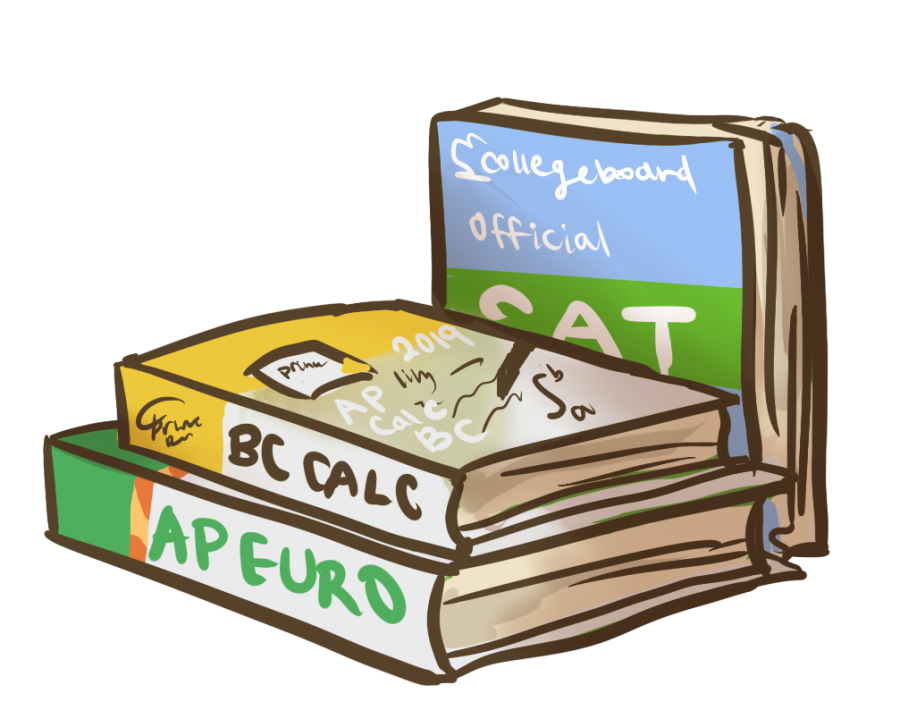New College Board AP test policy stirs controversy
October 15, 2019
In a series of changes to the organization of Advanced Placement courses, the College Board pushed the date for AP test registration for the 2019-2020 school year forward from March to October. Edina High School has set registration for first-semester and full-year course exams between September 23 to October 28, and registration for second-semester courses will occur in the spring.
In an email sent to AP Coordinators, Trevor Packer—Senior Vice President of Advanced Placement and Instruction for the College Board—expressed the reasoning for earlier exam registration deadlines. Some schools in the U.S. choose to register their students earlier than the official deadline. “In these schools, students perform better on AP exams” and “students were more engaged and less likely to give up when faced with challenging topics,” Packer said.
In addition to the new registration deadline, the College Board also increased and added certain fees. “The exam fee is going to be $75; last year it was $70,” AP Coordinator Deb Richards said. Test registration will be open until March 2, but a $90 late fee, up from $50 last year, will be applied to registrations starting on October 29. Students will also pay a $40 fee for cancelled or unused exams.
While she recognizes that the outcome of early registration is unclear, Assistant Principal Jenn Carter expresses her optimism with the new system: “I hope it builds confidence in students because, especially if you’re taking a course that has a lot of information that’s required for the test, you’re going to sit down and you’re going to try.”
Despite the explanation from the College Board, claims about the harms of an earlier registration deadline have arisen. Jennifer Wander, a high school counselor from Wisconsin, created a petition, which has just over 120 thousands signatures, on Change.org asking the College Board to maintain the March registration deadline. “The College Board is planning to make changes to Advanced Placement (AP) exams that will make things even more expensive and stressful for students, especially low-income students. Tell the College Board to put students over profits,” Wander said.
Erik Anderson, an AP United States Government and AP United States History teacher at EHS recognizes both sides of the argument, but he has concerns. “There might be circumstances where it’s not the best decision in the end to take the test or something comes up during the year, and there’s some consequences for that,” Anderson said.
However, to ease the transition, the College Board also introduced a new system called AP Classroom to provide resources directly to students. Although these materials are available to all students enrolled in AP courses, EHS AP Coordinator Deb Richards explains the benefits the program may have for other schools. “This way, students can have access to those resources in a smaller, rural area or somewhere and without their school necessarily offering it. I see a huge benefit for programs that aren’t as large as ours,” Richards said.
Anderson plans to incorporate AP Classroom into all of his classes, but he is unsure whether students will utilize the new tools. “It can’t be used for grading. I hope kids still use it because, as we know, grading often dictates whether kids use it,” Anderson said.
In light of the changes, Carter has advice for students: “Talk to your teacher, look at the resources, form study groups.” She also expressed her confidence in Edina students. “We have a long-standing tradition of excellence when it comes to this that we know that our students can do it…If we’re offering college opportunities here, why not take advantage of them,” Carter said.












marvedobankz • Jan 18, 2020 at 11:37 am
These days, the internet has been one of the most used services all over the world now. Coming to your website is not a mistake because there is a reason why I handed it on your website. And I also saw how you arrange your article, it is really
amazing and straight forward. I am sure when other viewers visit your website, they will also enjoy your post, the update that you have shared with them.